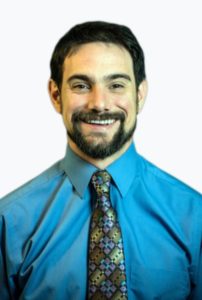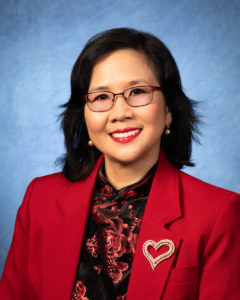We asked each of the candidates three questions, and here are their answers.
We asked each of the candidates three questions, and here are their answers.
What is Your Background?
Deasy: I graduated from Flagstaff schools and have master’s degrees in both economics and political science. I worked to change policies at international institutions while serving as a Research Fellow with the National Science Foundation and as a business analyst for Northern Arizona University leadership. I worked to improve student success, particularly in shaping programs to better suit the changing diversity of students. Most recently, I’ve worked toward solidifying Flagstaff’s future while serving as Flagstaff mayor since 2020.
Daggett: I have worked in non-profit management and leadership for about 25 years, and have participated in many state and community volunteer efforts. I was the first business retention and expansion manager for the City of Flagstaff, was the co-chair of the governor’s growing smarter oversight council, and I have worked on committees for small business development, regional planning, protecting open spaces, updating the city’s charter, and recommending bond projects to the Flagstaff City Council.
Salas: I have a well-rounded background with experience in government, business and non-profits. In my country of origin, the Philippines, I worked on policy development, economic and employment issues in Philippine Congress, and served as a mediator for labor disputes. I moved to Flagstaff in 2006 and first did marketing, community and volunteer engagement with Coconino County Parks and Recreation. I then worked for the Greater Flagstaff Chamber of Commerce before becoming a business and revenue development consultant.
Why are you seeking the position of mayor?
Deasy: Last year marked the greatest-ever transformation to our city government, with technological innovation, sustainability, justice reform, multimodal transportation and housing investment. I want to continue this drive toward meaningful change, which requires someone in the mayor’s seat who looks toward the future, rather than the past, with innovative solutions that drive this transformation.
Daggett: I’m a passionate advocate for Flagstaff and a public servant at heart. I have all of this experience and knowledge and I now want to put all of it together in the position of mayor. I believe that all of that experience, skill-building and relationship building has led me here.
Salas: In my fourth year as a councilmember, it’s time to elevate my commitment and dedication to public service and the well-being of Flagstaff. I have spent years working for our diverse community, and want to lead with well-rounded and pragmatic direction and build upon policy and budget initiatives I have led so far.
What are your top three priorities for Flagstaff’s near future?
Deasy:
Push innovation. We need to continue expanding the broadband, which will lead to synchronizing street lights, digitizing water meters, providing work and creating smart city initiatives.
Promote sustainability. This is critical to the quality of life and economy of tomorrow.
Justice reform. So many people in our community need help, not handcuffs. This means having mental health and substance abuse programs that are handled by health specialists, not police.
Daggett:
Address the housing emergency. So many in our community are spending much more than 30% of their income on housing, or they’re living in substandard housing.
Promote small business growth and job creation. While Flagstaff has a strong ethic for supporting small businesses, these businesses still face challenges that need to be resolved.
Address quality of life issues. These relate to challenges with resources such as parks, sidewalks, trails and bike safety that directly impact resident happiness on a daily basis.
Salas:
Develop all-encompassing workforce strategies. These relate to job training, skills training, childcare and affordable workforce housing.
Pursue strong and diverse economic vitality. We can do this by attracting more businesses that are engaged in low impact, high wage jobs, as well as making it easier to do business in Flagstaff.
Improve the transportation infrastructure. This is tied to economic development and workforce needs, including broadband, and is critical to community advancement. FBN
By Kevin Schindler, FBN








